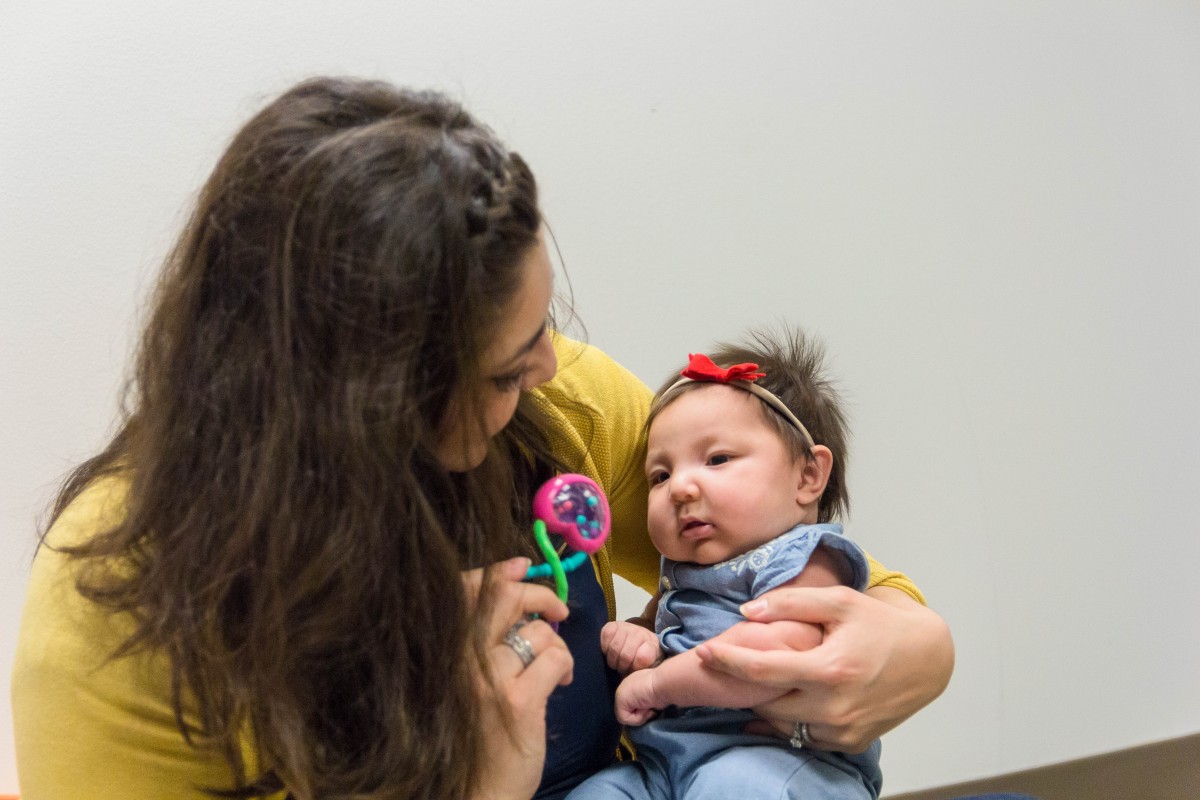KEEPING AN EYE ON YOUR CHILD’S OVERALL DEVELOPMENT
Published by First Things First on Mar 12, 2018
While every child develops at their own pace, there are certain milestones they should reach from birth to 5 years old in how they play, eat, learn, speak, behave and move.
Skills such as taking first steps, eating solid food, speaking words or phrases and emotional self-control are considered developmental milestones. It is important for parents to pay attention to how their child is developing in the early years for potential learning delays and disabilities. Early intervention is key and you are your child’s biggest champion.
 If you are a parent or caregiver of a child 5 years old and younger, you can make a difference by monitoring your child’s physical, mental, social, and emotional development and talking about what you see with your son or daughter’s health care provider. This is not a way to find something “wrong” with your child, instead, it should be viewed as a partnership opportunity between families and healthcare providers to keep your child developing in the best way possible.
If you are a parent or caregiver of a child 5 years old and younger, you can make a difference by monitoring your child’s physical, mental, social, and emotional development and talking about what you see with your son or daughter’s health care provider. This is not a way to find something “wrong” with your child, instead, it should be viewed as a partnership opportunity between families and healthcare providers to keep your child developing in the best way possible.
 If you are a parent or caregiver of a child 5 years old and younger, you can make a difference by monitoring your child’s physical, mental, social, and emotional development and talking about what you see with your son or daughter’s health care provider. This is not a way to find something “wrong” with your child, instead, it should be viewed as a partnership opportunity between families and healthcare providers to keep your child developing in the best way possible.
If you are a parent or caregiver of a child 5 years old and younger, you can make a difference by monitoring your child’s physical, mental, social, and emotional development and talking about what you see with your son or daughter’s health care provider. This is not a way to find something “wrong” with your child, instead, it should be viewed as a partnership opportunity between families and healthcare providers to keep your child developing in the best way possible.
- Keep notes and document issues that you are concerned about.
- Take pictures of your child doing a specific task.
- Record audios or videos on your phone of behaviors that concern you.
- Write down your questions and take them with you so you remember what to ask and tell your child’s primary care provider during your appointment.
- Call the toll-free, statewide Birth to 5 Helpline (1-877-705-5437). Nurses and child development experts are available to talk with you about your child, give you tips on which milestones they should have achieved for their age, and help you decide if a follow up with your health provider is needed.
- Fill out the online Ages and Stages Questionnaire from Easterseals. This free screening tool includes a series of questions regarding your child’s development and behavior. Results are emailed to parents within a couple of weeks and are intended to be used to follow up with a health provider regarding any identified issues.
- Complete the online Infant and Child Feeding Questionnaire from Feeding Matters. This free tool helps you better understand your child’s feeding habits and identify any areas of concern. Results can then be shared and discussed with your child’s physician. Additional resources for family support can be found on the Feeding Matters website.
- Contact Raising Special Kids if you have a developmental concern you want addressed, or if you think your child needs screening or further assessment.
- Get in touch with Child Find at your local school district for assistance with screening or special education services.
* * *
Feeding Matters and First Things First are united in supporting the health and wellbeing of Arizona’s children by nourishing a family-centered, comprehensive, and collaborative early childhood system. To learn more visit firstthingsfirst.org.